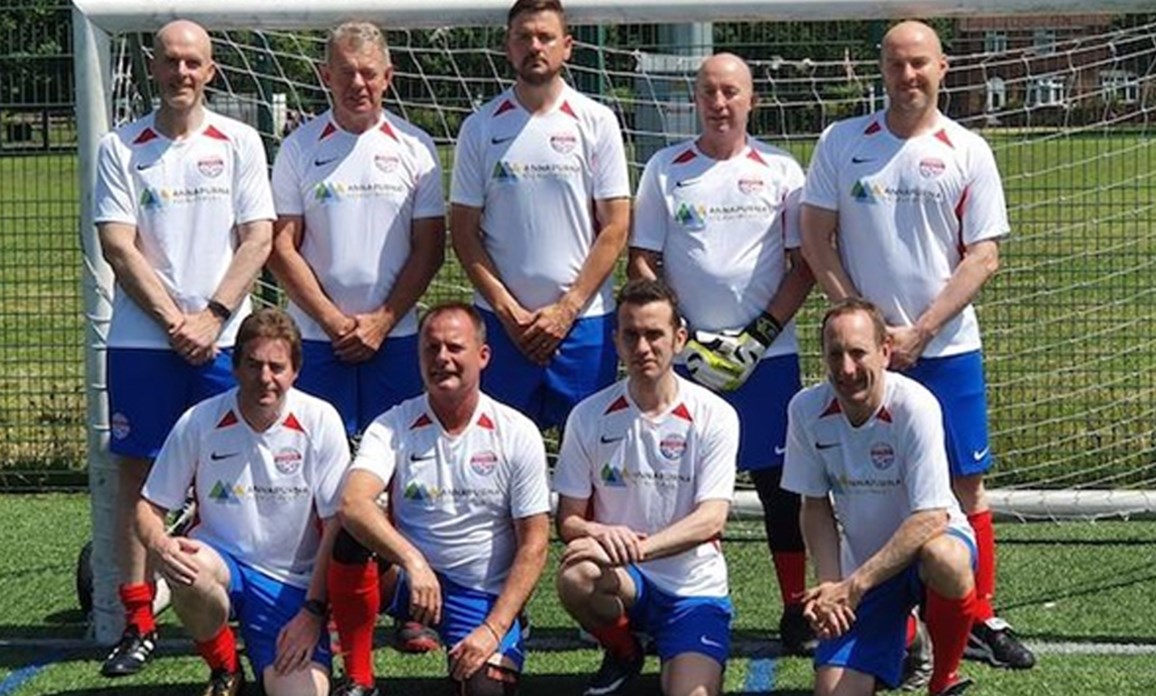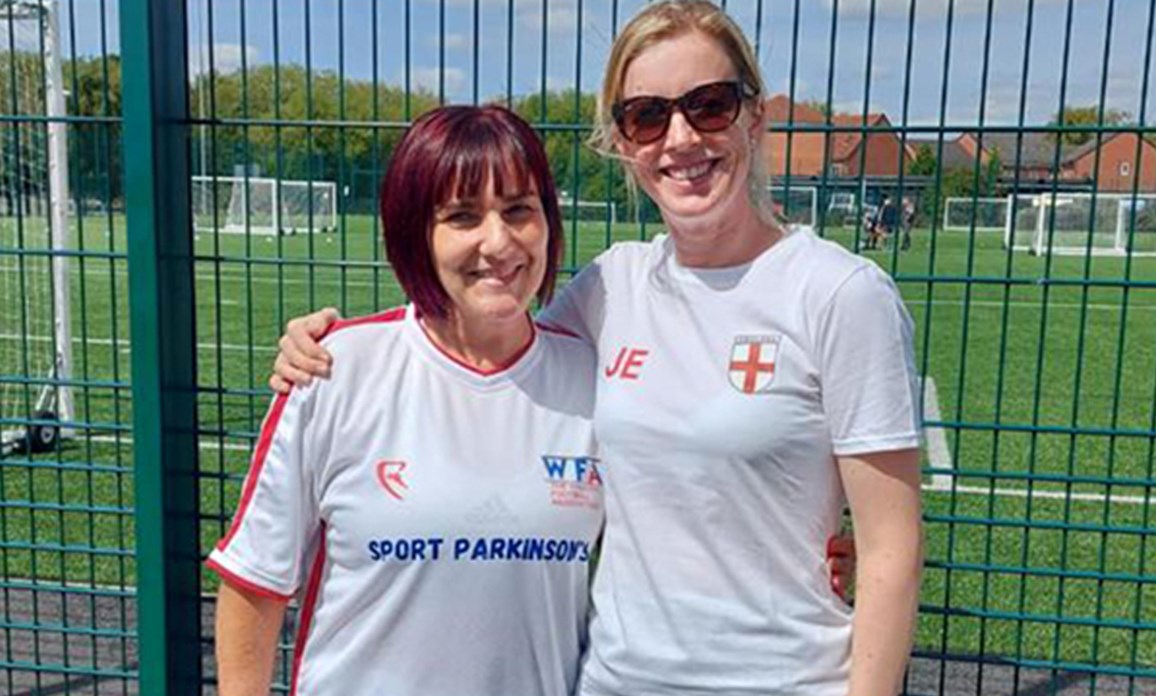Parkinson’s and soccer: the benefits and the risks
Whenever there is a major sporting event there is a surge of interest in the support and some people start taking up the sport or returning to it. Of course, playing sport has both benefits and risks and if you are living with Parkinson’s this is especially true.
Let’s start with the benefits. Playing soccer can be beneficial for people with Parkinson's disease in several ways.
First, participating in soccer or any other physical activity can help improve mobility, balance, and coordination in people with Parkinson's disease. This can help reduce the risk of falls and injuries, and can also improve overall physical function and quality of life.
In addition, participating in soccer or other team sports can provide a sense of accomplishment and social support, which can be especially important for people with Parkinson's disease who may feel isolated or overwhelmed by the challenges of the condition. Indeed, some studies have also suggested that regular physical activity, including soccer, may have cognitive and psychological benefits for people with Parkinson's.
What better way to understand the power of participating in sport, particular soccer, for people with Parkinson’s than to hear from Charlie Appleyard, the captain of the UK Parkinson’s Soccer Team, pictured centre, back row)...

“Trust me when I tell you that playing soccer is really good for Parkinson’s. When you’re on the pitch you’re just concentrating on the ball, you don’t even notice your symptoms. People assume that because you’ve got Parkinson’s you can’t play soccer but that’s just not true at all,” explains Charlie. SOURCE: https://parkinsonslife.eu/parkinsons-soccer-team/
However, it's important to remember that everyone has different needs, preferences and abilities, and what works for one person may not be suitable for another. It's important to consult with a healthcare professional before starting any new exercise program, particularly if you have Parkinson's disease.
One solution may be to modify the sport and instead of running, only walk. In fact “Walking Soccer” already a sport, and it is rapidly gaining popularity in the Parkinson’s community.
Here is what Stuart Carrington, soccer inclusion officer from Liverpool, UK, has to say about what Walking Soccer has to offer to people with Parkinson’s. “It’s an excellent way of staying fit and healthy, with studies showing that it can effectively treat mild-to-moderate hypertension. Yet, the biggest thing I believe the sport can offer PwPs is camaraderie. Everybody needs escapism, and I believe that walking soccer is it. It can promote a true sense of belonging and a family atmosphere, which really makes a difference in people’s lives. As I’ve gotten to know the people on the team, I feel that a unique bond has grown between us, which will continue for as long as I live. Every single one deals with challenges daily, but they all do it with such dignity – and they have a smile on their face every time we meet up.” SOURCE: https://parkinsonslife.eu/behind-englands-first-walking-soccer-team-for-people-with-parkinsons-disease/

Research suggests that professional soccer players have an increased risk of developing Parkinson’s and other neurodegenerative conditions in later life. Studies have found that professional soccer players have a higher prevalence of Parkinson's disease compared to the general population. However, it is important to note that the overall risk of developing Parkinson's disease is still relatively low, and the majority of soccer players will not develop the condition. One possible explanation for the link between soccer and Parkinson's disease is the repeated head impacts that players may experience during their careers. It is thought that these impacts may increase the risk of developing Parkinson's disease, although the exact mechanism is not yet fully understood. SOURCE: https://www.physiciansweekly.com/pro-soccer-players-face-higher-rates-of-neurodegenerative-disease So it’s reassuring to know that the ball is not allowed to go above head h
Did you know that these professional soccer players all were diagnosed with Parkinson’s:
Diego Maradona: Maradona was an Argentine professional soccer player who is widely considered one of the greatest soccer players of all time. He was diagnosed with Parkinson's disease in 2011 and died in 2020.
George Best: George Best was a Northern Irish professional soccer player who played as a winger for Manchester United and the Northern Ireland national team. He was considered one of the greatest players of all time, and he was the first winner of the European Soccerer of the Year award. Best was diagnosed with Parkinson's disease in 2000 and passed away in 2005 at the age of 59.
Jimmy Johnstone: Jimmy Johnstone was a Scottish professional soccer player who played as a winger for Celtic and the Scottish national team. He is widely considered to be one of the greatest players in the history of Scottish soccer. Johnstone was diagnosed with Parkinson's disease in 2001 and passed away in 2006 at the age of 61.
Billy McNeill: Billy McNeill was a Scottish professional soccer player who played as a centre-back for Celtic and the Scottish national team. He is widely considered to be one of the greatest defenders in the history of Scottish soccer. McNeill was diagnosed with Parkinson's disease in 2009 and passed away in 2019 at the age of 79.
Alan Hudson: Alan Hudson is a former English professional soccer player who played as a midfielder for several clubs, including Chelsea, Arsenal, and Stoke City. He was diagnosed with Parkinson's disease in 1999 and has since become an advocate for Parkinson's research and awareness.
Muhammad Hassan: Hassan was a Pakistani soccer player who played for the Pakistani national team and several professional clubs. He was diagnosed with Parkinson's disease in his 40s and has since become an advocate for Parkinson's disease awareness in Pakistan.
Gordon Banks: Banks, who was a goalkeeper for the English national team and won the World Cup in 1966, was diagnosed with Parkinson's in 1991. He passed away in 2019.
Jimmy Johnstone: Johnstone, who played for the Scottish national team and Celtic FC, was diagnosed with Parkinson's in 2001. He passed away in 2006.
Neil Lennon: Lennon, who is a former professional soccer player and current manager of Celtic FC, was diagnosed with Parkinson's in 2020.
Gylffi Sigurdsson: Sigurdsson, who is a professional soccer player currently playing for Everton FC and the Icelandic national team, was diagnosed with Parkinson's in 2020.
It is important to note that Parkinson's disease can affect anyone, regardless of their profession or level of physical activity. While there is currently no cure for Parkinson's, treatments such as medications and therapy can help manage the symptoms of the disease and improve quality of life.
THIS ARTICLE DOES NOT PROVIDE MEDICAL ADVICE and is not a substitute for professional medical advice, diagnosis or treatment. If you or any other person has a medical concern, you should consult with your health care provider or seek other professional medical treatment immediately. Never disregard professional medical advice or delay in seeking it because of something that you have read on this website or in any linked article, blog or other materials.








